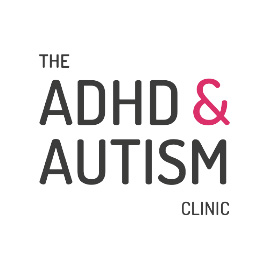Workplace Tips for Adults in Professional Spaces
TLDR; Adults with autism can thrive in the workplace by identifying careers aligned with their strengths, improving communication skills, deciding thoughtfully on disclosing their diagnosis, requesting workplace accommodations, and leveraging support networks for ongoing development.
Introduction
As the understanding of autism and employment grows, increasing numbers of autistic adults are seeking fulfilling careers in mainstream workplaces. While challenges remain—particularly around communication, sensory processing, and navigating unwritten social rules—there is increasing awareness of the need for inclusivity.
With the right support and preparation, many individuals with autism can flourish professionally. Tailored strategies, including choosing suitable roles, requesting reasonable adjustments, and fostering self-confidence, can all contribute to meaningful employment.
For those seeking clarity through formal diagnosis, our private autism assessments offer a structured and supportive starting point.

Identifying Strength-Based Career Paths
Identifying a strength-based career path is often the first and most important step. A good match between an individual’s cognitive style and their job can minimise stress and maximise fulfilment.
Strengths often seen in adults with autism include:
- Attention to detail
- Analytical thinking
- Visual or spatial reasoning
- Strong memory for facts
- Preference for routine and structure
Autism-friendly careers are often found in industries such as:
- Information technology
- Engineering and architecture
- Science and laboratory research
- Finance and accounting
- Technical writing or editing
- Archiving or library services
Career coaching or occupational guidance from professionals experienced in neurodiversity can help identify appropriate roles tailored to both strengths and sensory preferences.
Communication Tips for Success in the Workplace
Communication differences are common in adults with autism and may contribute to misunderstandings in the workplace. However, with the right tools, interactions can become more predictable and productive.
Helpful strategies include:
- Asking for written instructions to support verbal explanations
- Repeating back key points to confirm understanding
- Preparing scripts or questions in advance of meetings
- Seeking feedback regularly and requesting examples of expectations
- Explaining communication preferences to line managers
Supportive employers can play a significant role by offering clear expectations, consistent feedback, and allowing employees time to process information or request clarification without judgement.
To Disclose or Not to Disclose: Autism Diagnosis at Work
Deciding whether to disclose an autism diagnosis at work is a personal decision. There is no obligation to do so unless requesting adjustments. However, disclosure can allow access to important legal rights and workplace support.
The Equality Act 2010
In the United Kingdom, the Equality Act 2010 protects individuals from discrimination in the workplace due to disability. Under this Act, autism is recognised as a disability if it has a substantial and long-term adverse effect on one’s ability to carry out normal daily activities.
This legislation places a duty on employers to make reasonable adjustments to ensure that autistic employees are not placed at a disadvantage compared to non-disabled colleagues.
What Does ACAS Say?
ACAS (Advisory, Conciliation and Arbitration Service) provides guidance to both employees and employers. According to ACAS:
- Disclosure can help employers better support staff and create inclusive practices.
- Adjustments should be tailored to individual needs and regularly reviewed.
- Employers should create an environment in which staff feel safe to disclose a disability.
You may find ACAS’s Disability Discrimination Guide helpful for further reading.
How to Approach the Conversation
If you decide to disclose, preparation can make the discussion more effective.
Before the conversation:
- Consider what support you need to perform your role more comfortably.
- Be ready to explain how your diagnosis affects you in the workplace.
- Write down key points you wish to cover or questions you want to ask.
- Decide whether to speak with your direct manager or Human Resources.
During the conversation:
- Be clear, calm, and factual.
- Frame the discussion around how adjustments will benefit your work.
- If you are unsure how to begin, you might say, “I have a diagnosis of autism, which can affect how I process information and communicate. I would like to discuss some ways I could be better supported at work.”
Afterwards:
- Request a follow-up meeting to review support plans.
- Ask for written confirmation of any adjustments agreed.
- Keep records of communications for your own reference.
Some employees find it helpful to bring written documentation from a clinician or workplace coach to support their request for accommodations.
Making the Most of Workplace Accommodations
Workplace accommodations (or reasonable adjustments) allow employees with autism to function optimally without being placed at a disadvantage. These are not favours—they are legal entitlements where appropriate.
Examples include:
- Flexible working hours or remote work options
- Noise-cancelling headphones or quiet work areas
- Clear written instructions or task breakdowns
- Reduced exposure to sensory triggers
- Regular check-ins with a supportive manager
When requesting adjustments, be specific. For example:
“I find it easier to focus in a quieter space. Could I be moved to a workstation away from the printer?”
Remember, adjustments are often low-cost and beneficial not just for the autistic employee, but for the broader team.
Resources and Support Networks
Ongoing support is vital for navigating work with autism. Numerous organisations offer resources tailored to employment.
Helpful resources include:
- National Autistic Society – employment programmes and workplace guidance
- Ambitious about Autism – support for young adults transitioning to employment
- Exceptional Individuals – recruitment and coaching for neurodivergent individuals
- Remploy – services for disabled people seeking employment
- ACAS – legal advice and employer guidance on disability and discrimination
Online communities such as the Autistica Network, Reddit (r/Autism), and LinkedIn groups also provide insight, peer support, and networking opportunities.
Building Confidence and Thriving Professionally: Autism at Work
Success at work depends not only on external support but also on internal belief. Confidence builds over time through small achievements, resilience, and self-advocacy.
To build confidence:
- Focus on progress rather than perfection
- Celebrate small wins, even if they seem routine
- Find mentors who understand neurodiversity
- Embrace professional development opportunities
- Set clear but realistic personal goals
Many adults with autism have achieved excellence across a range of fields. Their journeys offer reassurance that with the right support, thriving professionally is entirely possible.
Final Thoughts on Having Autism at Work
Employment can present challenges for autistic adults, but these challenges can be overcome through self-awareness, preparation, and the right environment. From identifying autism-friendly careers, to improving communication, navigating disclosure under the Equality Act 2010, and seeking appropriate autism workplace accommodations, each step contributes to long-term success.
With support from organisations like ACAS, the National Autistic Society, and professional networks, autistic individuals can access meaningful opportunities and build confidence in their professional lives.
Ready to take the next step?
Contact us today to access tailored support and resources. Whether you are seeking an autism diagnosis or workplace guidance, we are here to help you move forward with confidence.
